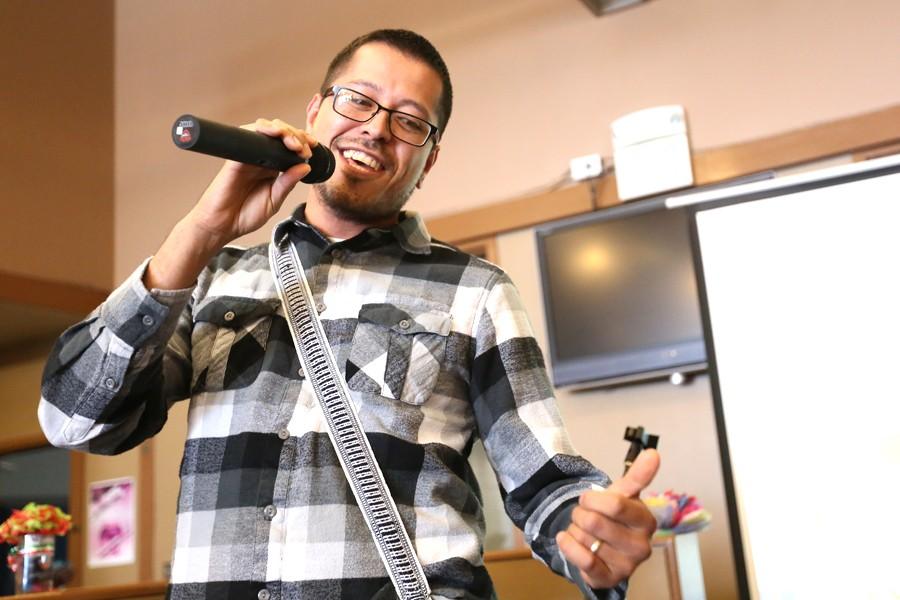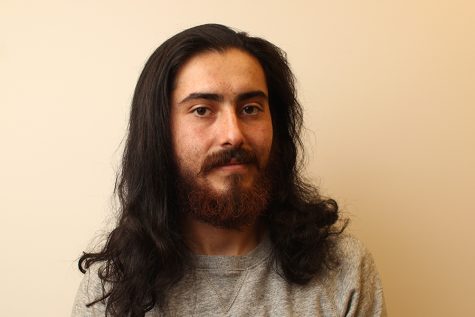Chicanos celebrate history
Annual Cinco de Mayo event traces cultural origins
La Raza studies professor Agustin Palacios elaborates on some of the disinformation about Cinco de Mayo, clarifying its true history for students during the Cinco de Mayo celebration in the Three Seasons Restaurant on May 5.
May 17, 2015
Many people in the United States celebrate Cinco de Mayo, but most do not understand its origin or why Mexican-Americans have maintained the tradition since 1863.
“It was not until the 1980s that the beer companies took it over,” Contra Costa College’s La Raza studies professor Agustin Palacios said, “So part of the struggle now is reclaiming Cinco de Mayo and that tradition of resistance, of fighting against imperialism and for democracy.”
La Raza Student Union (LRSU) students and faculty organized the annual Cinco De Mayo Celebration and Night of Cultural Resistance on May 5 at the Three Seasons and Knox Center.
Students and faculty were greeted by a fundraising piñata and La Raza members in the patio area of the Three Seasons Restaurant, behind the Applied Arts Building starting at 4 p.m.
They were encouraged to go to the Knox Center to watch a screening of the independent film “Sin Visa” from 6 to 8 p.m. and a chance to ask the anonymous star of the film (Marco) questions about his journey as an undocumented immigrant in the U.S.
Earlier in the day, and true to tradition, tri-color streamers, vibrant paper maché flowers and the Mexican national flag surrounded attendants moving in the dining area.
After students had their fill of the trays full of rice, tacos, tortilla chips, churros and chiles relleno poppers, prepared by culinary art students, they listened to political science major Maria Lara explain the celebration’s roots.
“Cinco de Mayo, or the fifth of May, commemorates the Mexican victory at the battle of Puebla during the French-Mexican War 1861-1867,” Lara said.
But when Palacios stepped in front of the projector and speakers of the karaoke stand, set up for people who would later sing songs by performers ranging from Selena to Vicente Fernandez, he brought up the question “why?”
“That was just one battle though,” Dr. Palacios said. “We won some we lost some. We don’t celebrate the day we finally kicked out the French or cut Maximilian’s head off. So what about this battle?”
“It actually began with a sword,” he said. “(General) Ignacio Zaragoza defeated the French in this battle and Mexican people living in the U.S. decided to honor him. So they raised funds to make a sword and sent it to him on Cinco de Mayo. But before he got the sword he died.”




